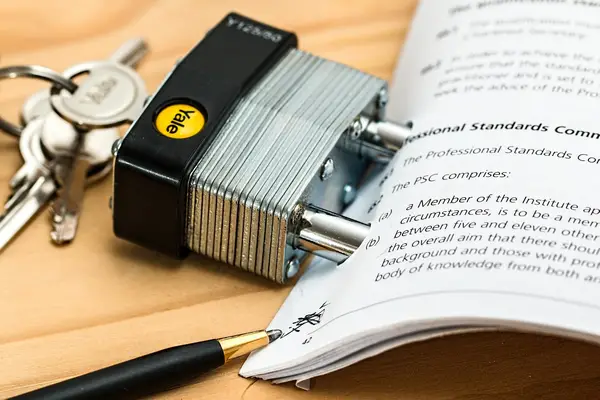
If you have just lost a loved one, you may be wondering whether or not you can sell their house before probate is granted. But also whether you can put the house up for sale before probate is granted. Let’s take a look…
Do you have to wait for probate before selling a house in brief
You don’t have to wait for probate if the property is owned as joint tenants, as neither person owns a specific share of the property. On the death of either joint owner, the property will automatically transfer to the the surviving owner. For tenants in common or if a property is in sole ownership probate is required.
Can you put a house up for sale before probate is granted?
It is only in certain circumstances where a house can be sold before probate is granted.
Where the property is owned as joint tenants, the surviving owner will automatically become the sole owner of the house.
This means that the surviving owner can immediately sell this house without the need for probate.
But if the deceased person is the only person named on the title deeds of the property, then probate will be required before the property can be sold. Or if the property is owned as tenants in common, probate will also be required before the surviving owner will be able to sell the house.
What is probate?
Probate is the process of dealing with the estate of someone who has died.
The probate process involves:
- Clearing their debts.
- Realising their assets.
- Distributing their net assets (i.e. their assets less their debts) to the beneficiaries named in their will.
Strictly speaking the term ‘Probate‘ actually refers to getting permission to carry out the person’s wishes contained in their will. This is assuming they have a will. If someone dies without a will, this is known as dying intestate. In this case it will be down to the rules set down by the government as to who benefits from the deceased estate. If a person dies intestate, it’s not probate that is required. But instead ‘Letters of Administration’ is required instead (see below).
The granting of probate is the first step in the legal process of administering the estate of the deceased person. Once probate has been granted, the executor of the estate who is normally named in the will, then has legal power to dispose of the estate in a manner that’s been specified in the will.
What are Letters of Administration?
If the deceased didn’t have a will, then Letters of Administration are usually issued to the person(s) entitled under the rules of intestacy to distribute the person’s estate.
Letters of Administration effectively means the same as Granting of Probate. Which is essentially a grant of administration by the court to allow a named person to administer the estate. The reason this is necessary is because the person doesn’t have a will. Which means they won’t have appointed an executor.
Other reasons why Letters of Administration might be necessary include:
- If the will is not valid. This might be the case if it’s unsigned or not been witnessed.
- If no executor has been named in the will then a letter of administration will be required to appointed someone to administer the deceased estate.
- Where the executors names in the will are either unable to act or not willing to act in this capacity.
Let’s now look at whether you have to wait for probate before selling a house.
Do you have to wait for probate before selling a house in more detail?
There a number of rules that govern whether you have to wait for probate (or for Letters of Administration) before selling a house, which are as follows:
- If the deceased property is in the deceased sole name: In this case probate is generally required before the house can be sold.
- If the deceased person leaves a spouse or partner who is on the title deeds of the property as a joint owner: If this is the case the house can be sold by the surviving partner before probate is granted if they so wish. However, the way in which the property is owned has a bearing on whether or not probate is required. See points 3 and 4 below.
- If the property is jointly owned as joint tenants, neither person owns a specific share of the property: On the death of the joint owner, the property will automatically transfer into the name of the surviving owner. This means that probate is not required. It also means the surviving owner automatically becomes the sole owner of the house.
- If the property is owned as tenants in common, each person owns the house in separate percentage shares: If one of the owners die, their share doesn’t automatically transfer to the surviving owner. Instead the deceased share will form part of their estate. Their share will pass to those who are entitled to inherit it as part of the will. For this situation it is likely that probate will be needed before the house can be sold. As the surviving tenant in common, you should always seek legal advice before attempting to sell your house after the death of a co-owner.
Can you put a house up for sale before probate is granted?
The answer is yes you can put a house up for sale before probate is granted or before Letters of Administration are issued. But you can’t complete the sale until there’s been a grant of probate.
If you receive an offer on the property before probate is granted, you can exchange contracts if you’re an Executor in the Will. But the contract cannot be completed until the Grant of Probate has been provided to your solicitor. This will need to be incorporated within the contract for sale. Which means the contract can only be completed subject to probate.
Estate agents will be keen to get the house on the market. But be aware that probate or Letters of Administration can take time to be granted. The last thing you need is to find a keen buyer, only for the sale to fall through because they end up having to wait for probate.
If you want to market a house before probate is granted, make sure to let potential buyers know.
I hope this article has helped about do you have to wait for probate before selling a house
If this article has helped about “do you have to wait for probate before selling a house” please share it on your favourite social media site.
Also, if you have any questions, please feel free to comment below too. Alternatively, if you need more help, please feel free to contact us on our contact us page here. Or join the discussion and ask your question in the property forum.




